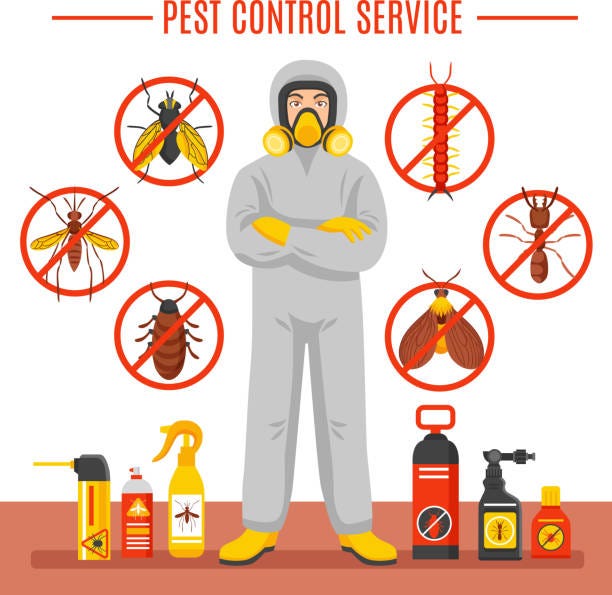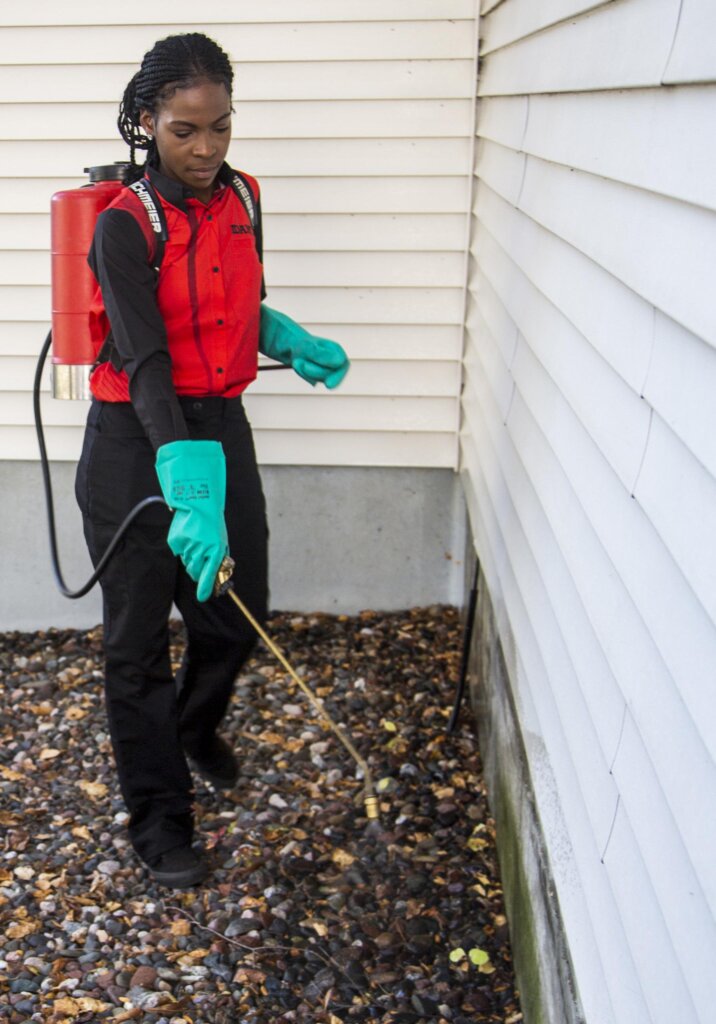Custom-made Pest Control Homestead Plans for Maximum Defense
Custom-made Pest Control Homestead Plans for Maximum Defense
Blog Article
Ultimate Overview to Bug Control: Benefits, kinds, and techniques
Insect control is a vital element of keeping a secure and healthy and balanced atmosphere, whether it be in domestic, business, or farming settings. Recognizing the benefits, methods, and types of parasite control techniques can substantially impact the effectiveness of parasite administration strategies.
Significance of Pest Control
Parasite control plays a vital duty in keeping the health and wellness of both domestic and business settings. By successfully taking care of and eliminating organizations, pests and individuals can stop the spread of conditions, safeguard building from damages, and guarantee a tidy and sanitary living or working space. Pests such as termites, insects, and rodents can present significant wellness dangers to human beings and pets by contaminating food, transmitting diseases, and creating allergic reactions. In addition, parasites can cause structural damages to buildings and infrastructure, resulting in pricey fixings and possibly jeopardizing the safety and security of residents.
Implementing normal pest control measures not just safeguards the physical health and wellness of people but additionally contributes to their psychological health by developing a safe and comfy atmosphere devoid of the annoyances and disruptions brought on by pests. In business setups, pest control is vital for maintaining a favorable online reputation, abiding with health and wellness and security policies, and safeguarding the health of clients and workers. On the whole, the relevance of insect control can not be overemphasized in protecting the wellness, security, and overall quality of life in both residential and business areas.
Typical Parasite Control Methods
Offered the critical function that pest control plays in guarding health and building, it is essential to explore efficient methods for handling and getting rid of pests. Common parasite control strategies include a variety of approaches customized to details bug kinds. Physical methods include using catches, nets, or obstacles to stop pests from getting in or to record them. Organic control utilizes all-natural killers or microorganisms to manage bug populations, lowering the requirement for chemical interventions. Chemical control, such as pesticides, is widely used but requires mindful application to minimize environmental influence. In addition, integrated insect management integrates different approaches to achieve long-lasting parasite reductions while lessening risks to human health and the community. Social strategies, like correct waste management and maintaining tidiness, also play a vital duty in insect prevention. Inevitably, the most reliable pest control strategy frequently includes a mix of strategies tailored to the particular pest types and the setting in which they stay.

Organic Insect Control Methods
When thinking about environmentally-friendly methods to managing insect populaces, natural pest control approaches offer a sustainable service. These approaches count on all-natural options to artificial chemicals, making them more secure for the setting, human beings, and non-targeted species. One usual natural insect control approach is organic control, which entails presenting natural predators, parasites, or pathogens to manage parasite populations. Ladybugs are often made use of to regulate aphids in yards.
Another efficient organic parasite control technique is using organic chemicals acquired from natural resources such as bacteria, minerals, or plants. These chemicals target particular insects while reducing harm to advantageous insects and the ecological community. Neem oil, as an example, is a preferred natural chemical that interferes with the development and reproduction of numerous insects without triggering damage to various other organisms.
Cultural practices like plant rotation, friend planting, and maintaining correct plant health and wellness likewise fall under natural parasite control methods. By minimizing and producing a well balanced ecosystem pest susceptabilities, these practices assist stop bug infestations without the requirement for hazardous chemicals. Organic parasite control methods not just protect the atmosphere yet additionally advertise long-term and lasting bug monitoring solutions.
Kinds Of Insect Control Solutions
Taking into consideration the diverse methods available for taking care of bug populations, a key aspect to discover next is the variety of services used under the umbrella of insect control. Pest control solutions can be generally categorized into three major kinds: domestic parasite control, industrial insect control, and incorporated pest administration (IPM)
Residential bug control solutions concentrate on handling and getting rid of bugs frequently found in homes, such as ants, rodents, cockroaches, and termites. These solutions commonly include the application of secure yet effective therapies to shield the health and security of homeowners.

Integrated Parasite Management (IPM) takes an all natural technique to pest control by integrating organic, social, physical, and chemical strategies to manage parasite populaces effectively while lessening threats to human health and the setting. IPM concentrates on long-term avoidance and lasting pest management practices.
Integrated Parasite Management Method
An integrative method to pest management, referred to as Integrated Parasite Administration (IPM), combines numerous methods to successfully regulate pest populations while decreasing dangers to human wellness and the atmosphere. Pest Control Homestead. IPM concentrates on protecting against insects via a combination of organic, social, physical, and chemical control techniques. By using an all natural technique, IPM aims to address the origin creates of parasite infestations instead of just dealing with the symptoms
One secret element of IPM is the use of organic controls, such as presenting all-natural predators or pathogens to take care of bug populaces. This technique decreases the reliance on chemical pesticides, thus reducing the total environmental impact. Cultural controls include changing the parasite's habitat to make it much less welcoming, while physical controls include using catches or obstacles to leave out or catch pests.
IPM likewise emphasizes surveillance and routine evaluation to examine parasite degrees precisely and identify one of the most proper control methods. By incorporating these varied strategies, IPM supplies a sustainable and reliable method to pest management that advertises lasting remedies while protecting human health and the ecosystem.

Conclusion
By making use from this source of various strategies such as natural approaches and integrated pest management, people can efficiently avoid and manage parasite problems. On the whole, executing proper insect control measures can help secure home, crops, and human health and wellness from the unsafe effects of parasites.
Recognizing the benefits, techniques, and kinds of pest control techniques can substantially affect the effectiveness of bug monitoring techniques. Typical pest control methods encompass a range of methods customized to particular parasite kinds. One usual organic pest control method is organic control, which entails presenting natural predators, bloodsuckers, or microorganisms to regulate insect populaces.An integrative strategy to pest monitoring, understood as Integrated Parasite Monitoring (IPM), integrates numerous strategies see this page to successfully manage pest populations while minimizing threats to human health and the environment. Social controls entail customizing the bug's environment to make it much less hospitable, while physical controls consist of the usage of traps or barriers to exclude or catch bugs.
Report this page